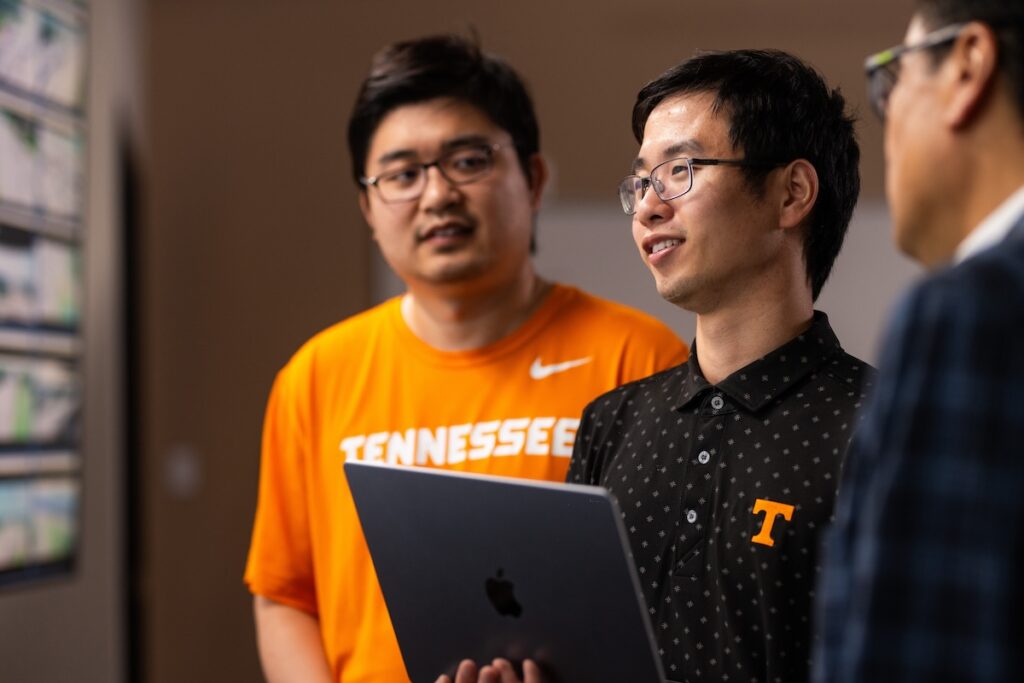policy, Economics and Infrastructure
Informing smart policies and developing next-generation infrastructure
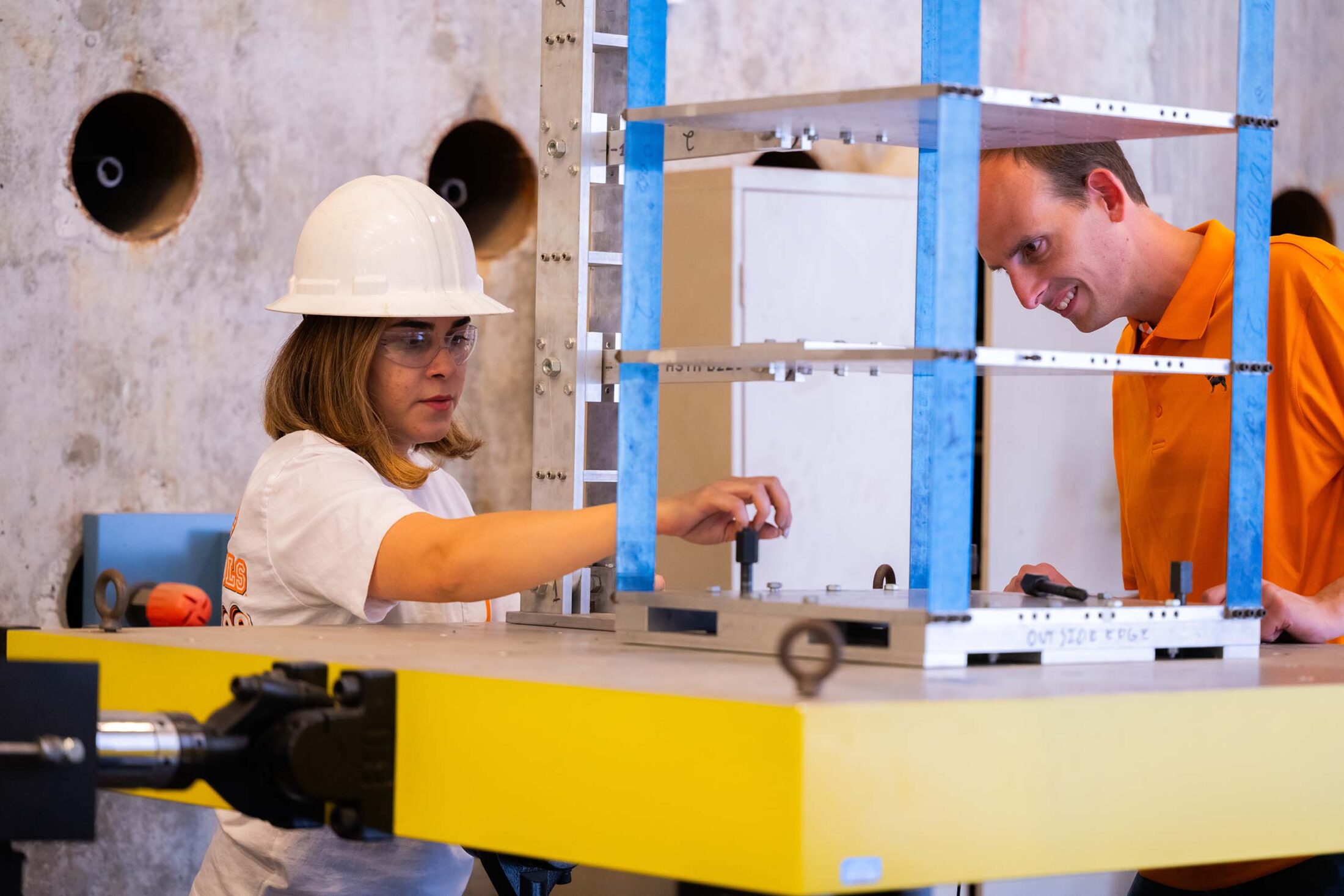
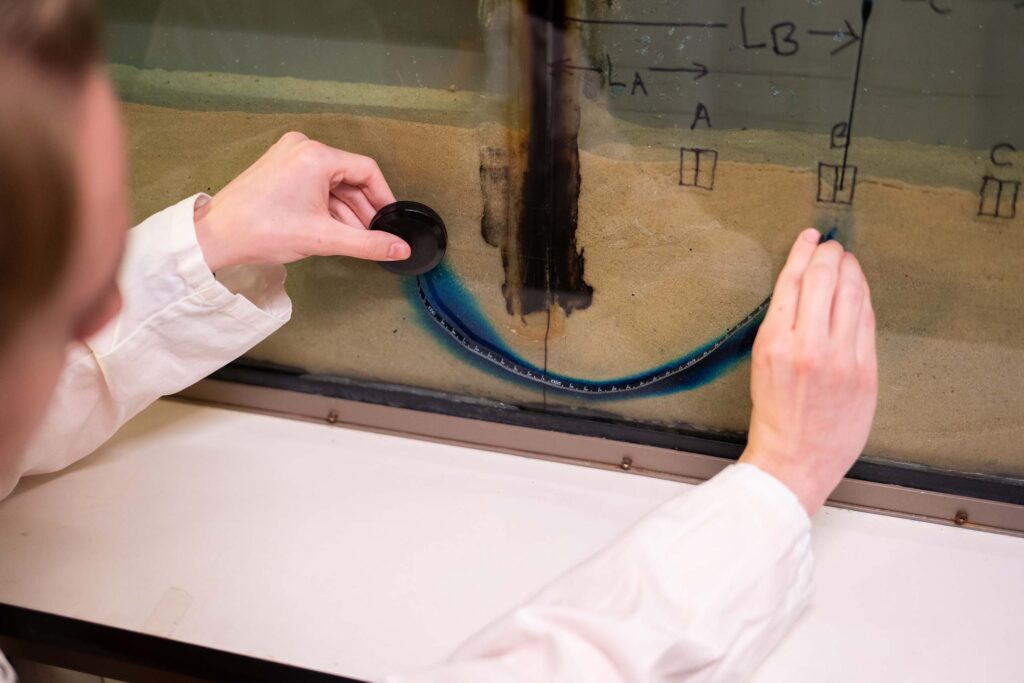

The electrification and digitization of mobility are poised to create significant societal and environmental benefits. To inform the effective deployment of technological innovations in transportation systems, UT experts are producing economic impact analyses, informing the development of public policy, and supporting advances in built infrastructure.
A transportation system supported by sound economic and public policy and safe, well-designed infrastructure fuels economic growth and enhances competitiveness. Together with our partners, UT is setting a thriving mobility future in motion across Tennessee and the nation.
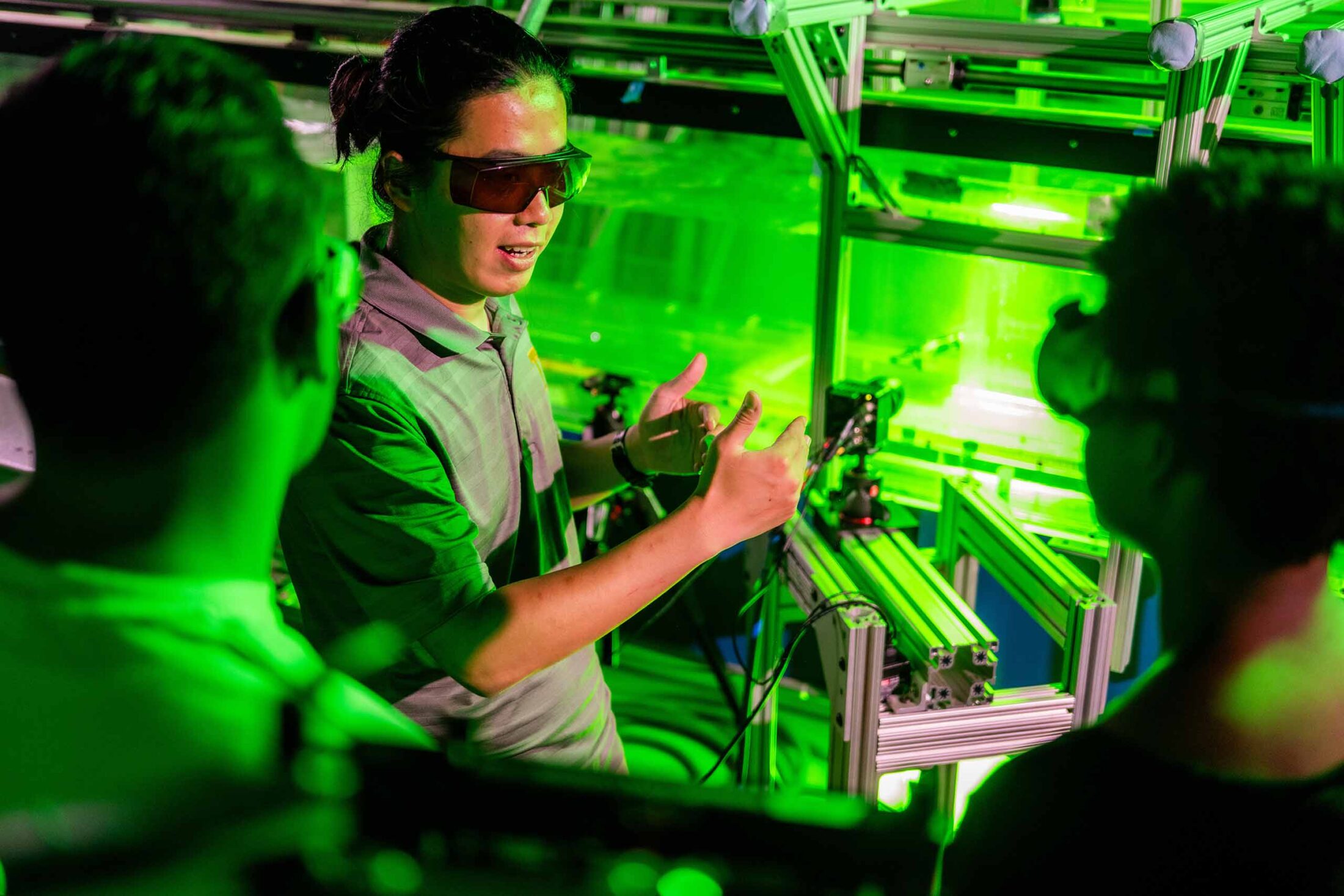
UT’s Approach
UT researchers develop novel materials and technologies to help states build durable infrastructure such as bridges and roads and maintain them efficiently and effectively. In one long-term project, researchers developed and installed a next-generation polymer composite for bridge decks and are using smart sensing technologies to monitor its real-world performance and durability. Other faculty and students are exploring how to use ground-penetrating radar or underwater robots to inspect bridges and other structures.
Faculty also investigate infrastructure components that support emerging mobility solutions. One UT team, for example, is focused on developing infrastructure and control methods for autonomous air travel.
Other UT faculty and students are developing economic and policy structures that promise to enable future mobility. They are working to analyze and interpret the effects of vehicle scrappage trends, passenger vehicle demand, and federal fuel economy standards, and their work has significant implications for regulations and investments related to emission reductions, adoption of electric and other alternative fuel vehicles, and electric charging infrastructure.
UT researchers advise national and state government entities, too. One team from Knoxville and Chattanooga developed research to support the development of Tennessee Department of Transportation strategies enabling smart mobility and infrastructure. Members of the Transportation and Logistics Collaborative have advised the Tennessee Governor’s Office on infrastructure improvements.
UT partnered with TVA to launch the Valley Pathways Study, which evaluates opportunities to pursue economic growth while accelerating decarbonization. The findings provide insights for transportation policy and EV charging infrastructure.
“UT’s research informs transportation policy and infrastructure decision-making with analysis of how decisions may influence travel costs and choices. Our work provides insights on how transportation systems and infrastructure may change in the future.”
—Ben Leard, Assistant Professor, Agricultural and Resource Economics



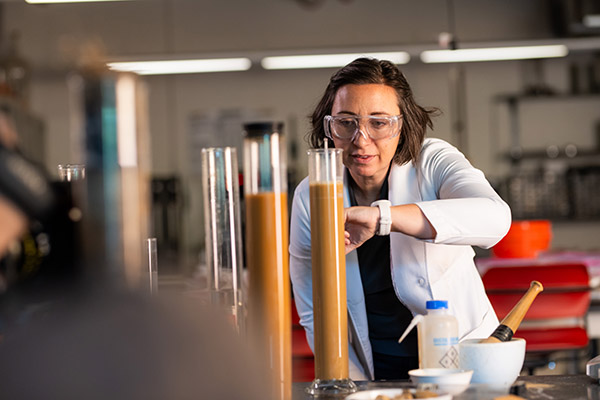

Highlights

Our Researchers
-
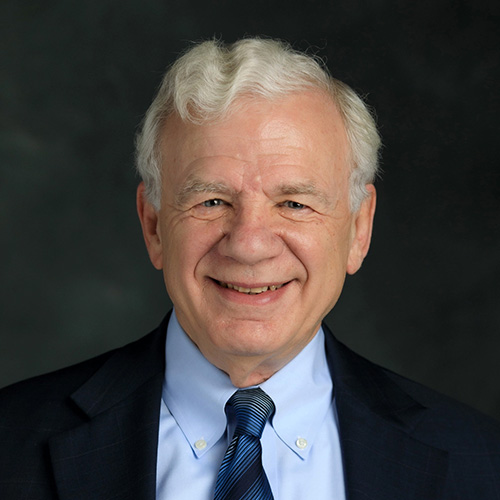
Boyd Distinguished Professor Emeritus, Special Advisor to the UT Chancellor
Economics, taxation
-

Edwin G. Burdette Professor, Civil & Environmental Engineering
Infrastructural materials, engineering characterization and multi-scale modeling of asphalt cement, pavement engineering, geotechnical engineering, slope stability, soil improvement
-

Assistant Professor, Agricultural and Resource Economics
Transportation policy, environmental and climate policy
-

Professor, Civil & Environmental Engineering
Evaluation of ASR-affected structures, 3D printing of concrete, bond behavior between rebar and concrete, behavior of prestressed concrete bridges, accelerated bridge construction for durability
-
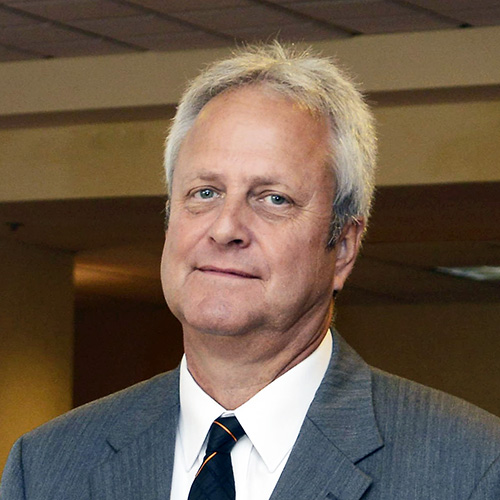
Professor of Economics, Executive Director Emeritus of the Baker Center
Economics, public finance, economic development, public policy


